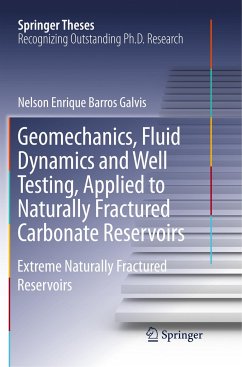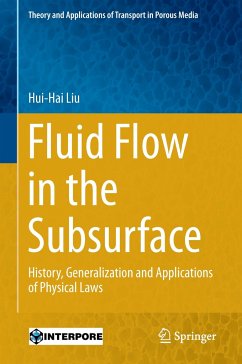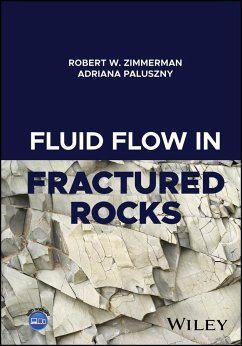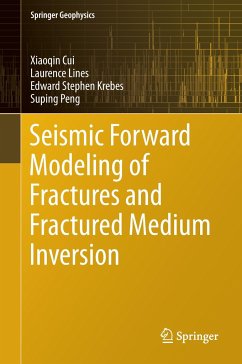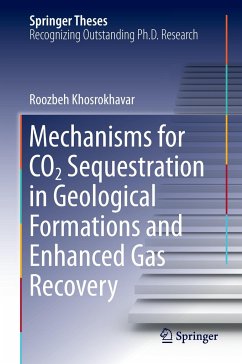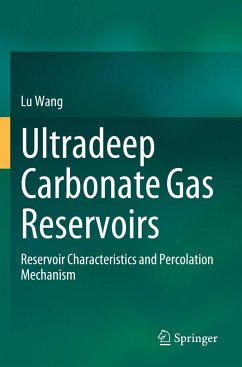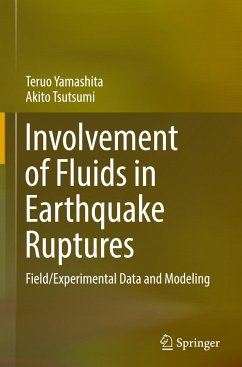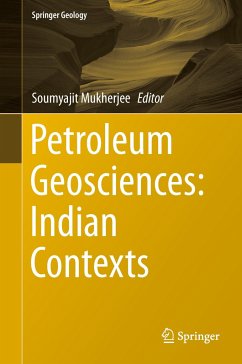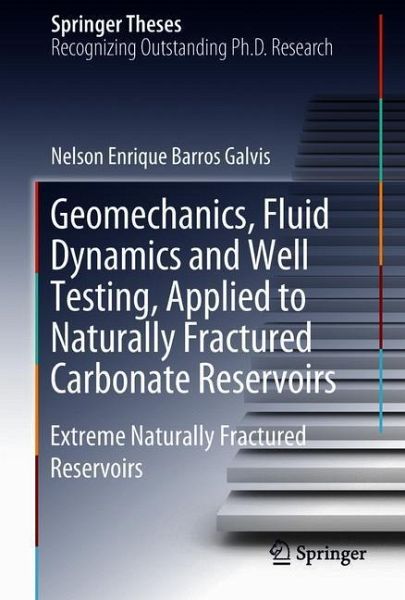
Geomechanics, Fluid Dynamics and Well Testing, Applied to Naturally Fractured Carbonate Reservoirs
Extreme Naturally Fractured Reservoirs
Versandkostenfrei!
Versandfertig in 6-10 Tagen
91,99 €
inkl. MwSt.
Weitere Ausgaben:

PAYBACK Punkte
46 °P sammeln!
This thesis presents an important step towards a deeper understanding of naturally fractured carbonate reservoirs (NFCRs). It demonstrates the various kinds of discontinuities using geological evidence, mathematical kinematics model and computed tomography and uses this as a basis for proposing a new classification for NFCRs. Additionally, this study takes advantage of rock mechanics theory to illustrate how natural fractures can collapse due to fluid flow and pressure changes in the fractured media.The explanations and mathematical modeling developed in this dissertation can be used as diagno...
This thesis presents an important step towards a deeper understanding of naturally fractured carbonate reservoirs (NFCRs). It demonstrates the various kinds of discontinuities using geological evidence, mathematical kinematics model and computed tomography and uses this as a basis for proposing a new classification for NFCRs. Additionally, this study takes advantage of rock mechanics theory to illustrate how natural fractures can collapse due to fluid flow and pressure changes in the fractured media.
The explanations and mathematical modeling developed in this dissertation can be used as diagnostic tools to predict fluid velocity, fluid flow, tectonic fracture collapse, pressure behavior during reservoir depleting, considering stress-sensitive and non-stress-sensitive, with nonlinear terms in the diffusivity equation applied to NFCRs. Furthermore, the book presents the description of real reservoirs with their field data as the principal goal in the mathematical description ofthe realistic phenomenology of NFCRs.
The explanations and mathematical modeling developed in this dissertation can be used as diagnostic tools to predict fluid velocity, fluid flow, tectonic fracture collapse, pressure behavior during reservoir depleting, considering stress-sensitive and non-stress-sensitive, with nonlinear terms in the diffusivity equation applied to NFCRs. Furthermore, the book presents the description of real reservoirs with their field data as the principal goal in the mathematical description ofthe realistic phenomenology of NFCRs.





